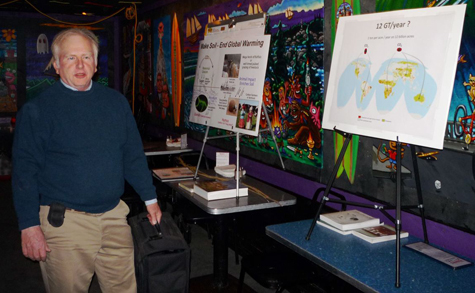The wholistic approach
Submitted on
I've mentioned other times about preferring to have one blog instead of two, for all sorts of quotidian reasons, but foremostly in a symbolic way: I want to find a way to make my two issues — saving the planet and escaping the misery of obesity — be one. (It's the Buddhist's hot dog order: Make me one with everything.) When the subjects are, say, solar energy and food addiction, it's not readily apparent where the Venn overlap is.
- Read more about The wholistic approach
- Michael's blog
- Log in to post comments
